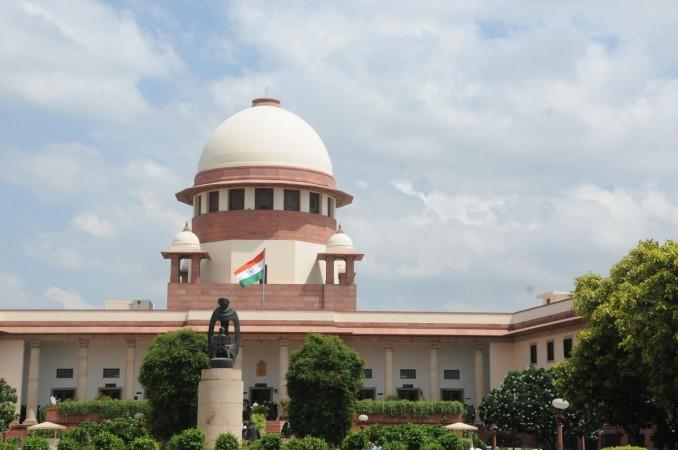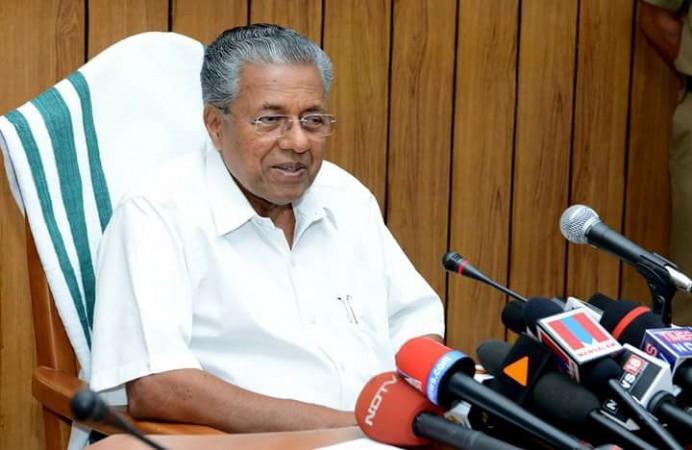Kerala, on Tuesday, January 14, became the first state in the country to move the Supreme Court against the contentious Citizenship Amendment Act (CAA).
The suit - which comes amid a nationwide uproar against CAA - seeks to declare the law as unconstitutional. It has been filed under Article 131 of the Indian Constitution. The Supreme Court is already hearing over 60 petitions against the law.
"While the Hindus from Pakistan, Afghanistan and Bangladesh are covered by the Impugned Amendment Act, the defendant did not consider the issues of the Hindus, primarily of Tamil descend, in Sri Lanka and Hindu Madhesis in Terai of Nepal, whose ancestors migrated to Sri Lanka and Nepal respectively in the eighteenth Century from the then British India," Kerala government's petition says.
Article 131 states that the Supreme court is the guardian of the Fundamental Rights guaranteed under Article 14 which states that if there is any kind of violation of the fundamental rights, then one can go directly to the Supreme Court under Article 32 of the Constitution (this being a fundamental right too).

But when there is a dispute which arises between the States of India or between the State Government and the Union Government then it is the jurisdiction of the Supreme Court under Article 131 of the Constitution to resolve these disputes.
Among the others who have already approached the apex court on this includes the Indian Union Muslim League - the second biggest party in the Congress-led United Democratic Front in Kerala and also Leader of Opposition Ramesh Chennithala.
Kerala argues that if the object of CAA is to protect the minorities who faced religious persecution in Afghanistan, Pakistan and Bangladesh, then, the Ahmaddiyas and Shias from these countries are also entitled to same treatment extended to Hindu, Sikh, Buddhist, Jain, Parsi and Christian communities.
Resolution against CAA
The Kerala government had earlier passed a resolution demanding the scrapping of the CAA. The ruling CPI(M)-LDF and the opposition Congress-led United Democratic Front (UDF) supported the resolution, while the BJP's lone MLA and former union minister O Rajagopal's was the only dissenting voice in the one-day special session. The House adopted the resolution moved by Chief Minister Pinarayi Vijayan.
"The world is in astonishment when it read through the intricacies of the CAA, where religion has been the benchmark of this division."
On the last day of 2019, it was a rare moment when the traditional political rivals, the Left Front and the UDF, joined hands to pass the resolution. The day's special session had been convened to discuss the CAA.

In the 140-member Kerala Assembly, the BJP has one legislator. Opening the debate was Chief Minister Pinarayi Vijayan, who pointed out that the entire country was shocked and protests were everywhere against the CAA.
"The world is in astonishment when it read through the intricacies of the CAA, where religion has been the benchmark of this division. And seeing this, the Indian diaspora is in a state of shock. There will be no detention centres in Kerala. India is known for its secularism and that has come under duress. Under no circumstances can this CAA go forward and hence should be withdrawn," said Vijayan.
Expressing his strong dissent against the resolution taken up by Vijayan, Rajagopal said that what was happening on the floor of the Assembly was unconstitutional.

"How is it possible for this legislature to pass a resolution against a law, that is the CAA that has already become a law, after going through all the procedures. All this is now being created by a party which in the past had divided the country based on religion. So, this is nothing but to score political brownie points and nothing else," said Rajagopal.
Leader of Opposition Ramesh Chennithala pointed out that the CAA has now become the biggest challenge before the country since Independence.
"India did not surface one fine morning, instead it evolved over years and years of hard work and see what has taken place now. The Constitution is one which was carefully prepared. The Indian Citizenship Act came into effect in 1955 and since then six times it underwent changes, but not once was anything done in the name of religion. Now see, in one stroke everything is in shambles and the country is being sliced and hence this should go," said Chennithala.











